This year I put forward my first proposal to speak at the Australian National Cyber Security Conference, organised by the Australian Information Security Association (AISA) of which I have been a member for around 5 years.
I have previously spoken at the AISA local Perth branch conference, and figured that there was a lack of content around my area of interest, being web security (something I have spoken at other conferences in the past about, and been teaching students and colleagues since 2014.
I was thrilled to be selected, based on merit (and not sponsorship), to present.
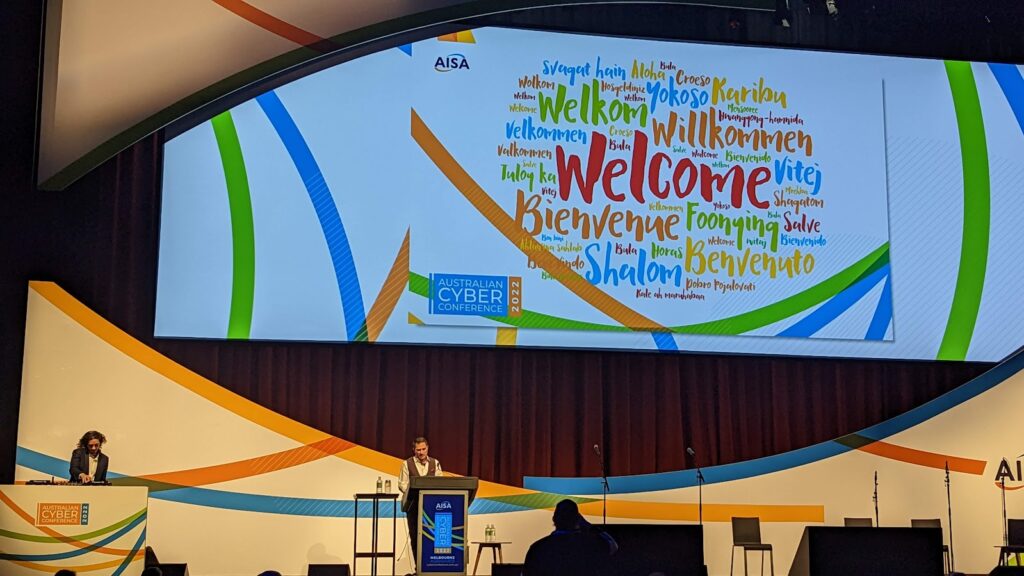
Held at the Melbourne Convention and Exhibition Centre, spanning three floors, there weer to be just shy of 400 speakers, and over 4000 attendees.
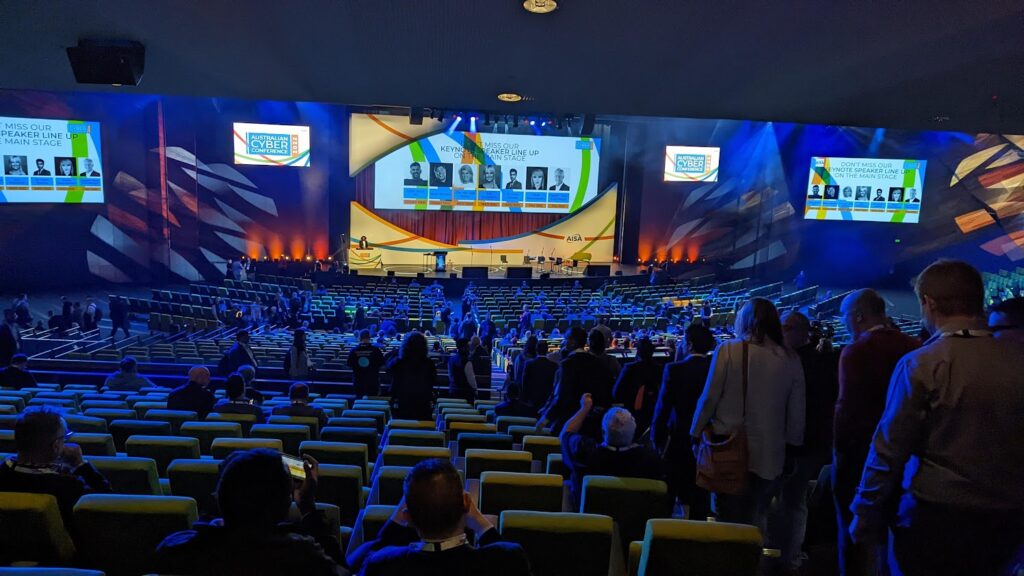
Its a big venue, and there were at times some 15 simultaneous breakout streams running over the three days of the conference, along with a large exhibitor hall. The catering budget alone for the event was in excess of AU$1M.
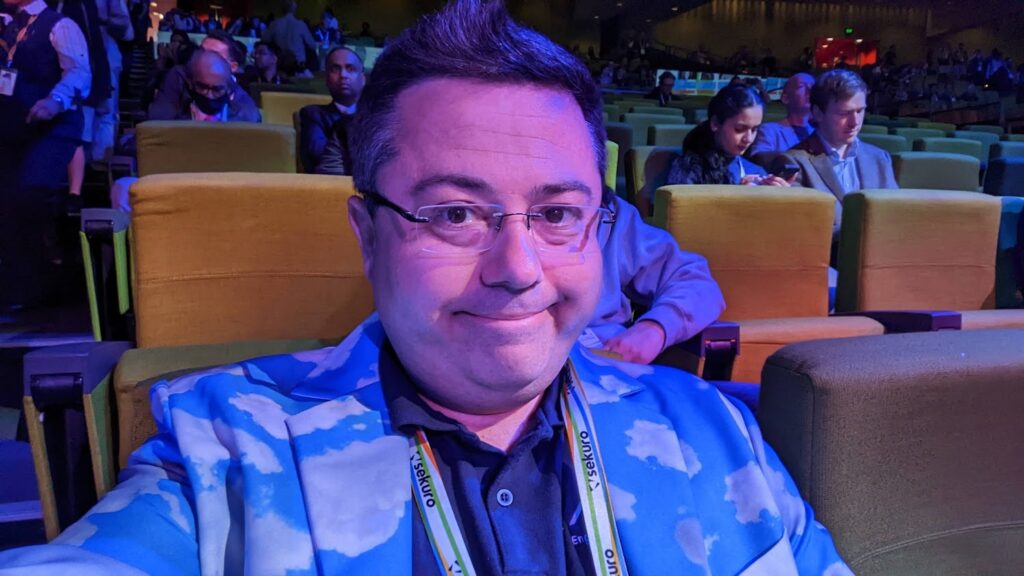
We started with a word from Clare O’Neil, the federal minister presenting via pre-recorded video:
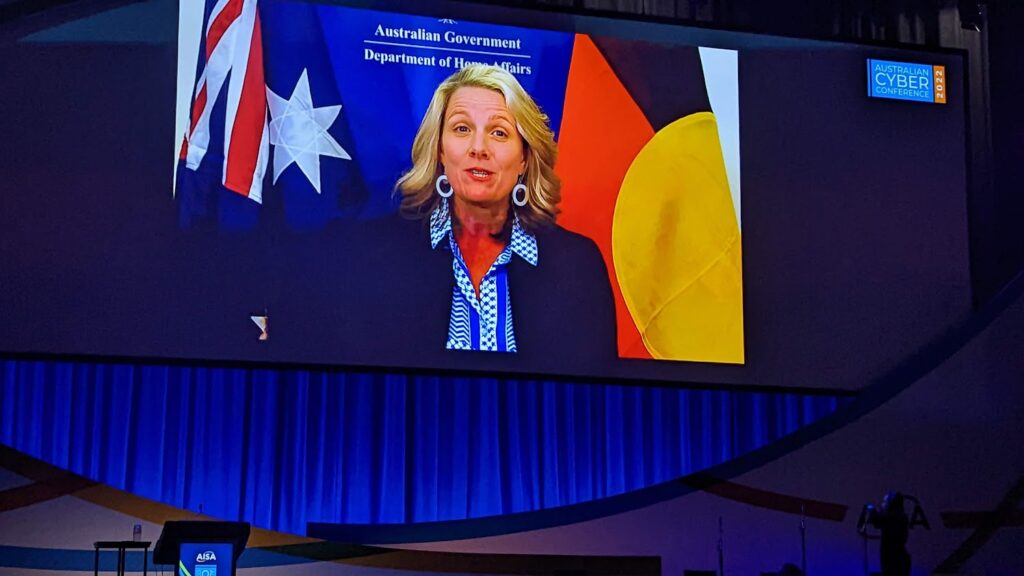
This was followed by Dillan Alcott giving a no-holes bared authentic blast from his personality on how he sees himself, his challenges, and opportunities:
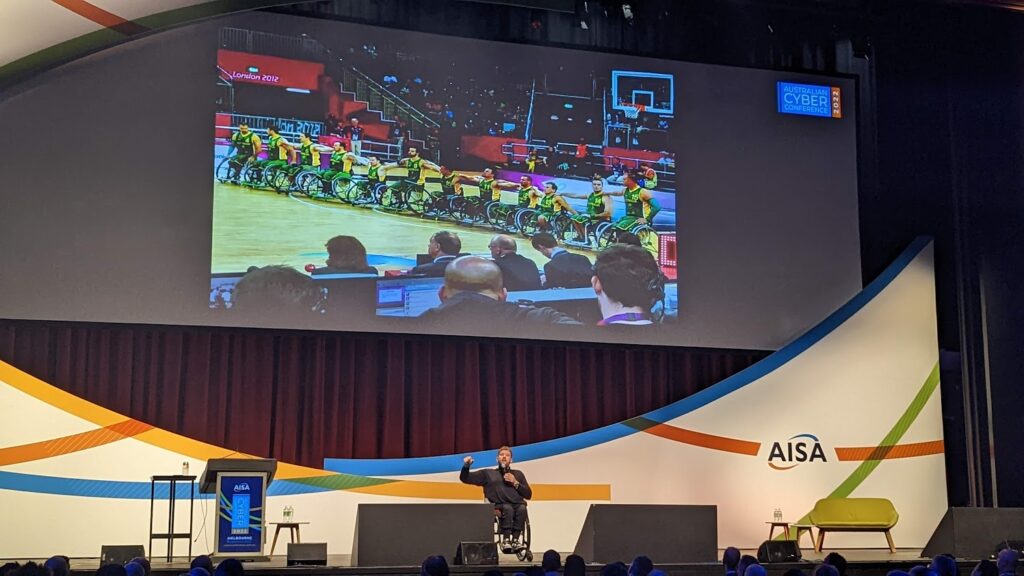
Later in the day came The Woz, here speaking with conference host Juanita Phillips:
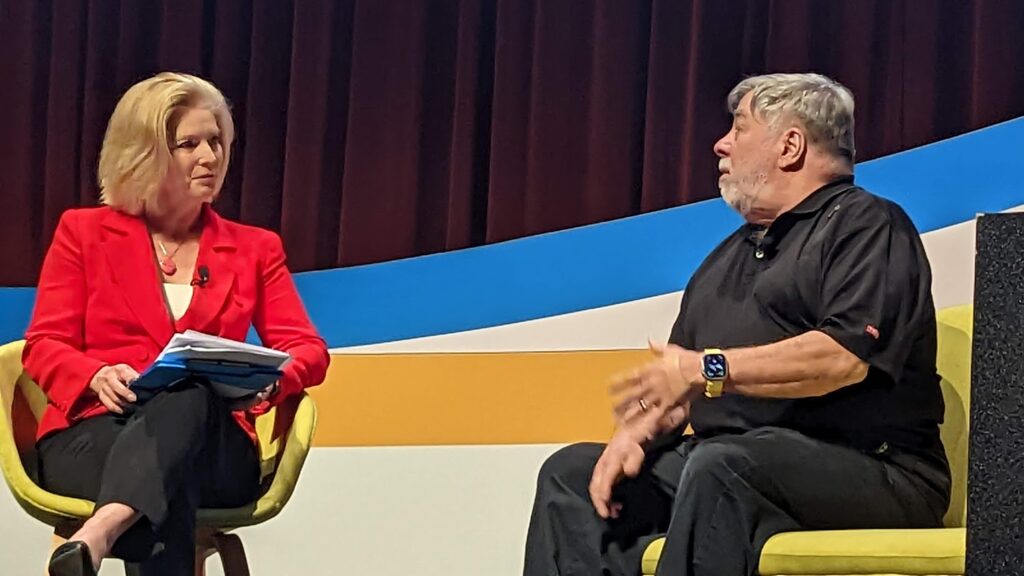
Steve was a genuine engineer, taking joy in the machines he could build with the chipsets he played with. It was heartening to hear the desire to avoid conflict and disappointment, and focus on achievement and joy.
Next up was Juliette Wilcox CMG, Cyber Security Ambassador for UK Defence and Security Exports at Dept International Trade, UK Government.
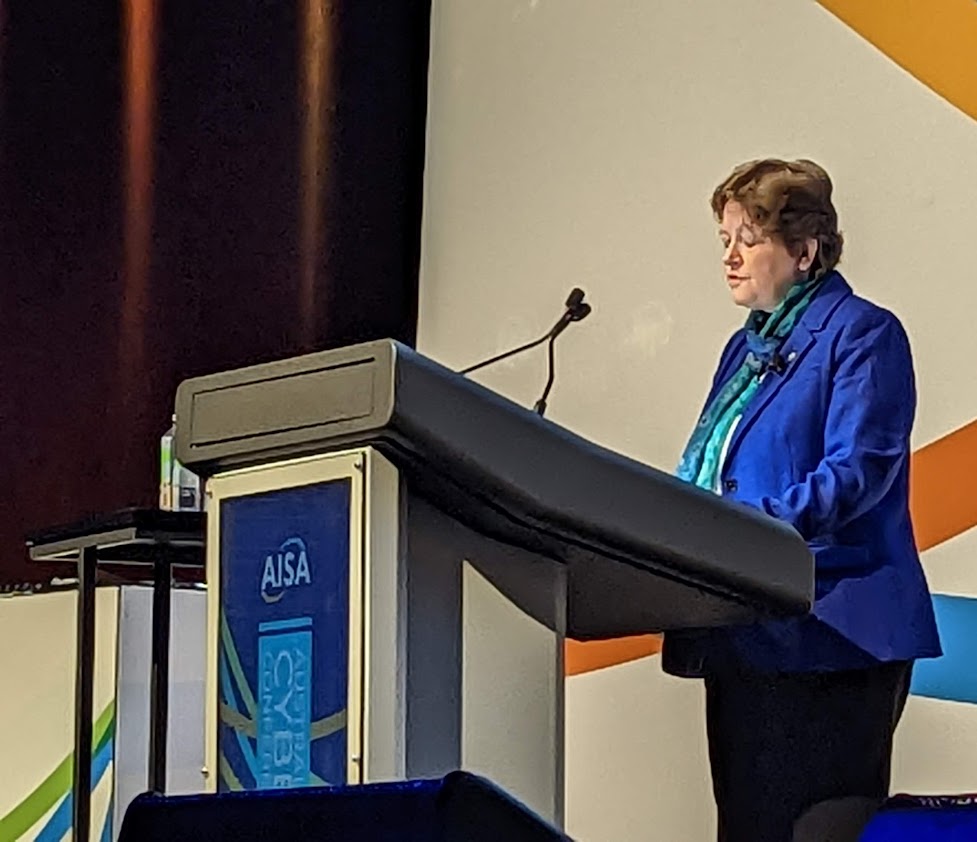
Juliette spoke well about the importance of strong cybersecurity, sharing advances, and having reliable systems to ensure that trade and economics could proceed smoothly.
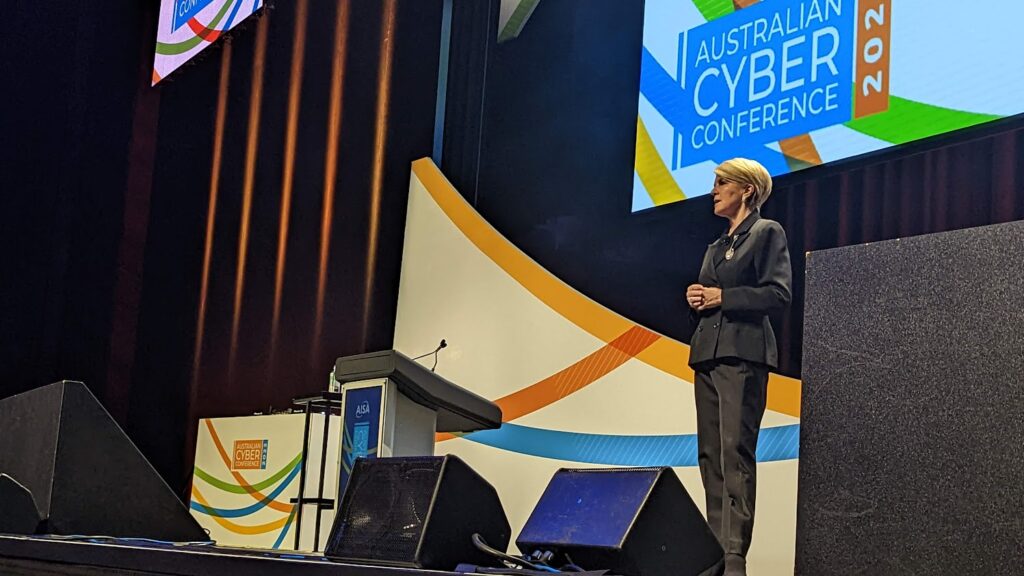
Next up was Julie Bishop, who also spoke about the important of strong cyber security in our digital systems and the reliance on these systems for international trade and relations.
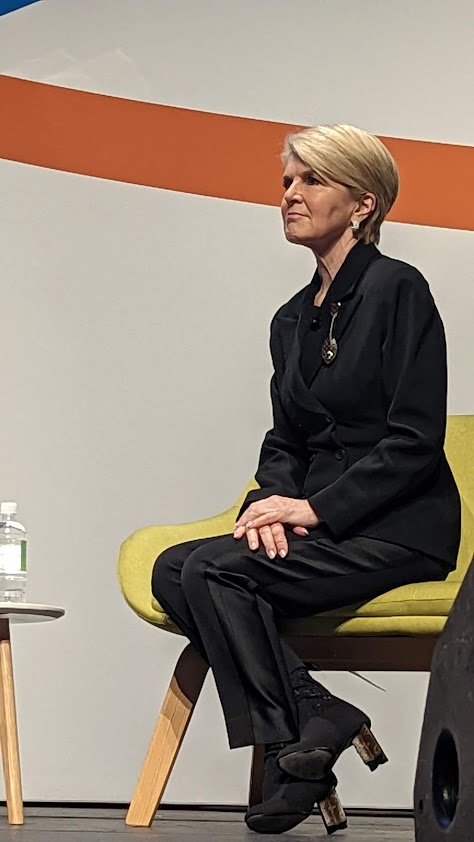
Next up was environmental advocate (not activist), Erin Brockovich.
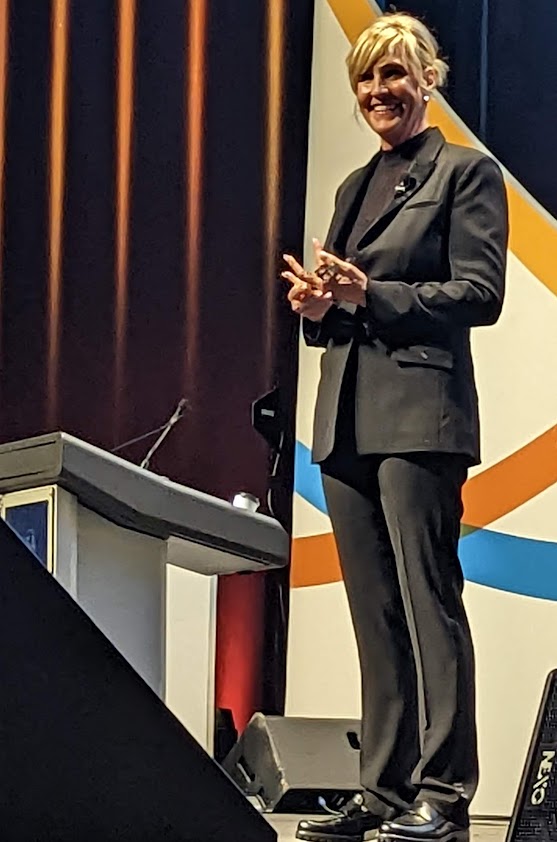
Erin spoke of her stick-to-it-ivness, determination to write a wrong, and managing conflict. She rejects the title of being an Environmental Activist, as its deemed to negative, but more an advocate for the environment.
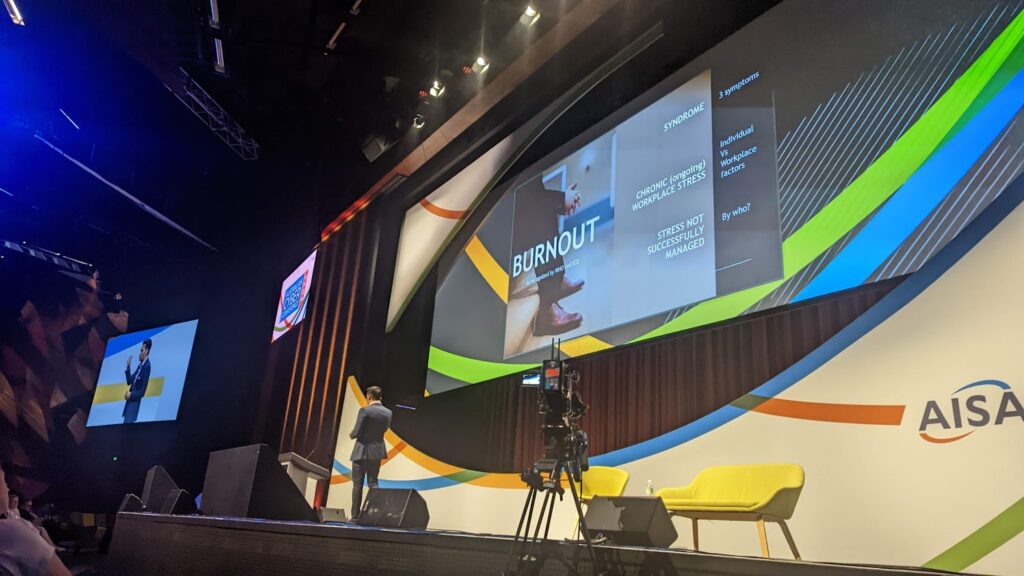
Next was Dr Vyom Sharma, talking about managing stress. From Workload, to Reward, Fairness, Autonomy, Community and Values as all being factors in stress that lead to burnout.
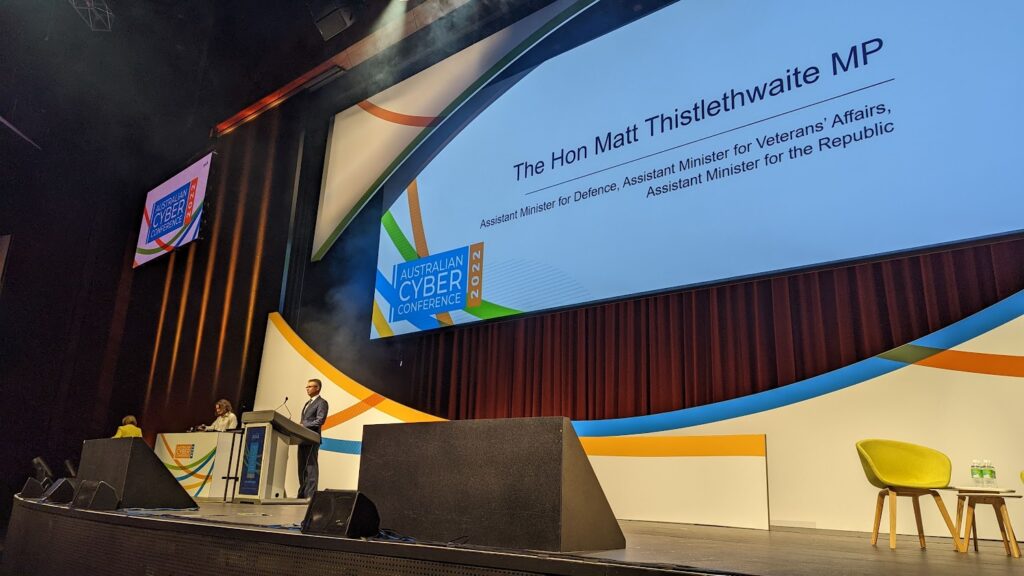
A surprise was Matt Thistlethwaite adding to the line up, who spoke about the Dept Defence programs on Critical Infrastructure and reach out via ACSC and their programs.
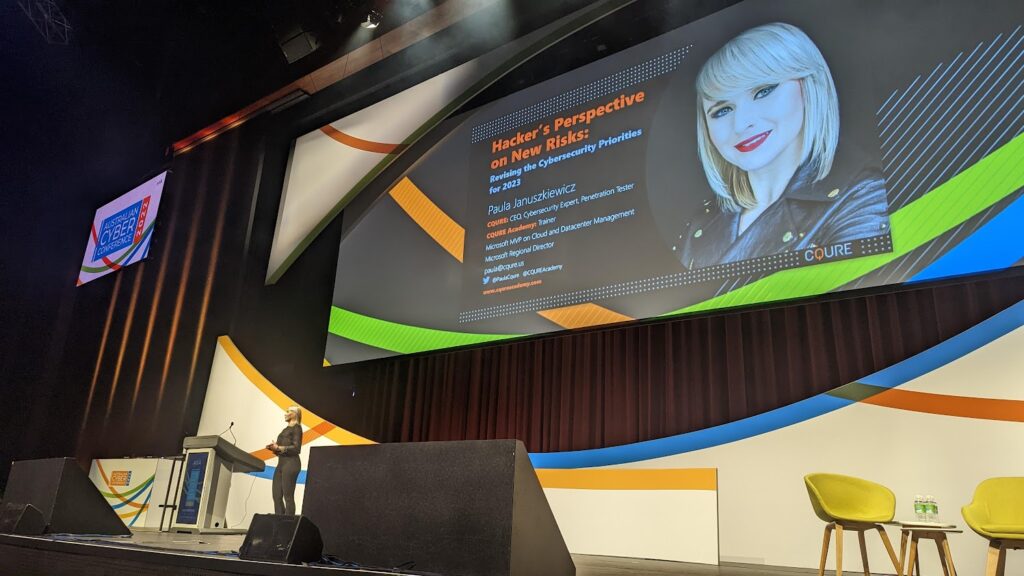
Finally a pentester gets to the stage – Paula J – who proceeded to drive holes with Windows Server processes and WMI, demonstrating live to the audience the risks with misconfigured and under-configured systems.
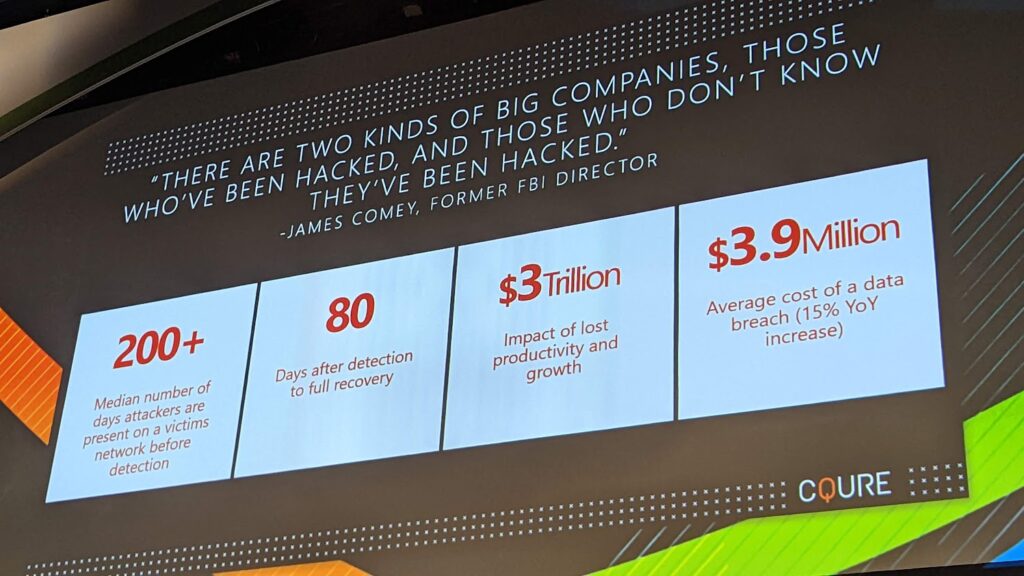
And then, we came to Capt Sully Sullenberger:
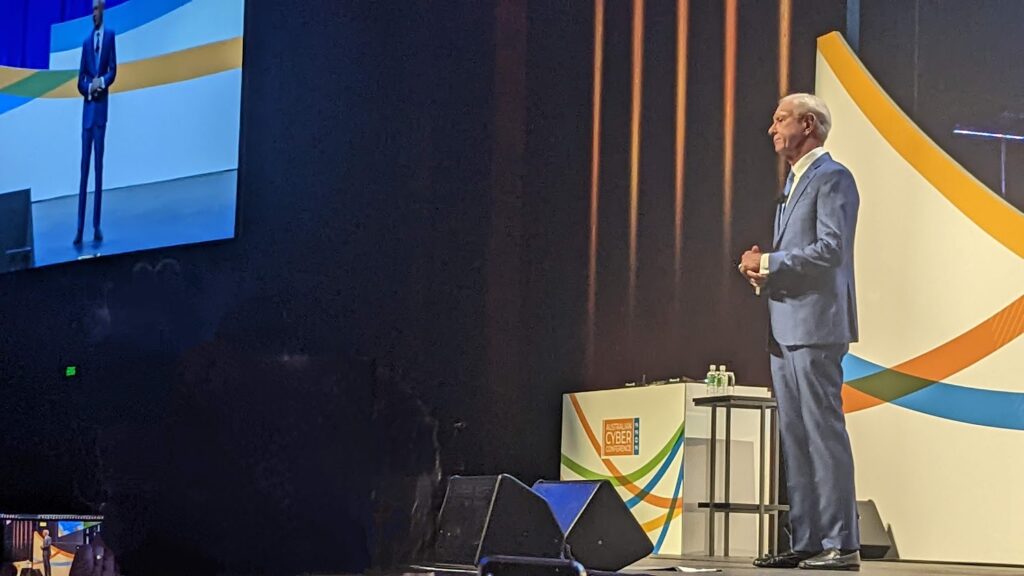
Capt’n Sulley was the calmest person on stage. He spoke about being passionate about what you love, and becoming a master of it. He says he’s loved two aircraft, and old DC, and the Boeing he was in when he encountered the bird strike in 2009 on flight 1529 our of New York. His passion meant that he had internalised the entire manual, and know which pages he would be turning to, and what the first few actions would be before any manual was opened.
He spoke of his roles and activities since 2009, working with aviation safety, and the improving record on US domestic flights (no deaths since 2009).
The Awards Dinner
As a speaker, I had a ticket to the awards gala dinner.
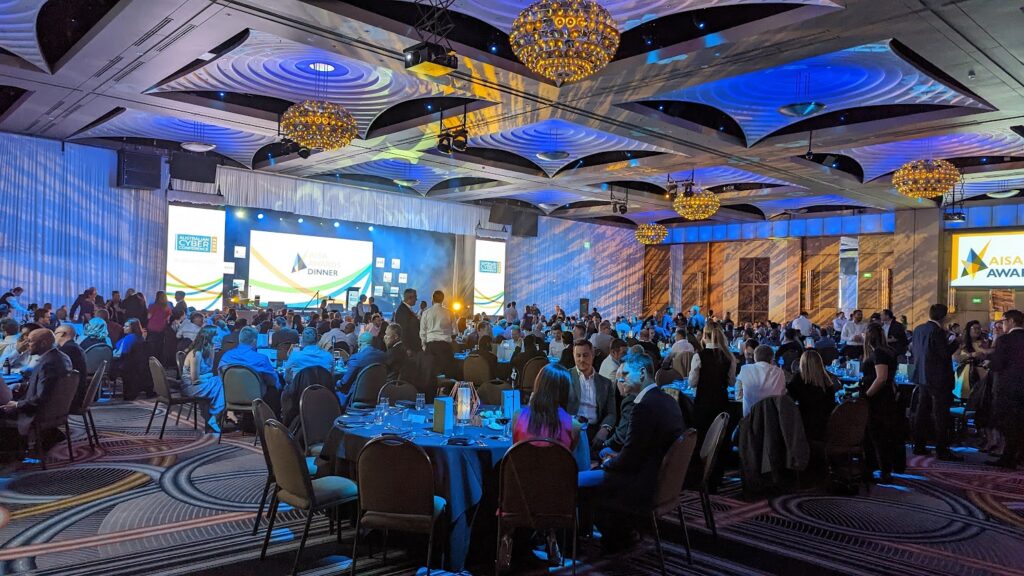
It was great to see my local North Metro TAFE pick up one award, and Chris Bolan and friends at Seamless Intelligence pick up another. Congatulations to all the nominees and the winners.
A few sessions of note
I kind of liked the presentation on Cyber Asset Attack Surface Management, new in the Gartner graphs of wonder from July 2021 . At its core, its about having more visibility of all the assets, including those SaaS apps that staff sign up for, and at its most basic, can be just a spreadsheet of what’s in use:
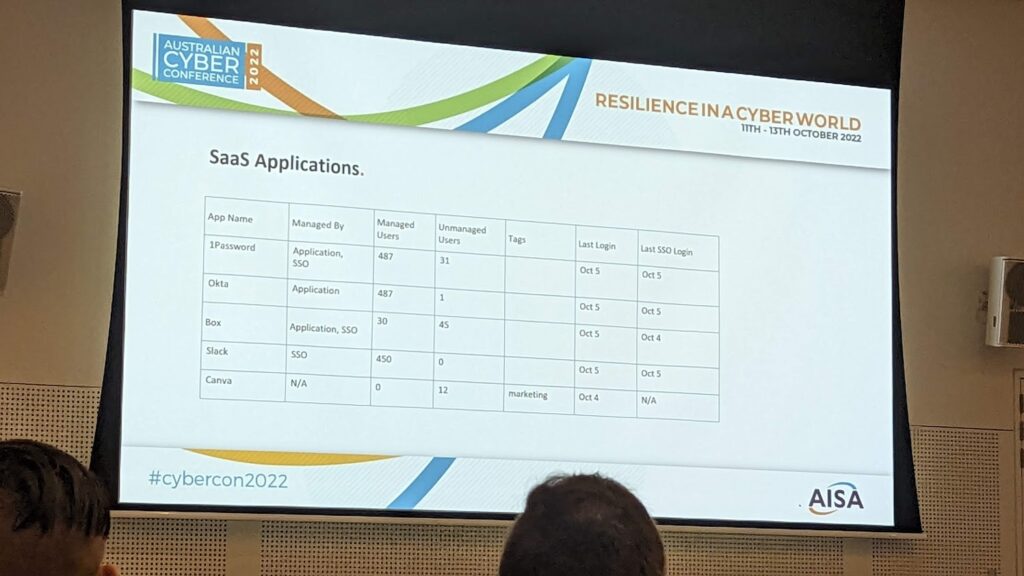
Next up, was the Ukranian power outages of 2014:
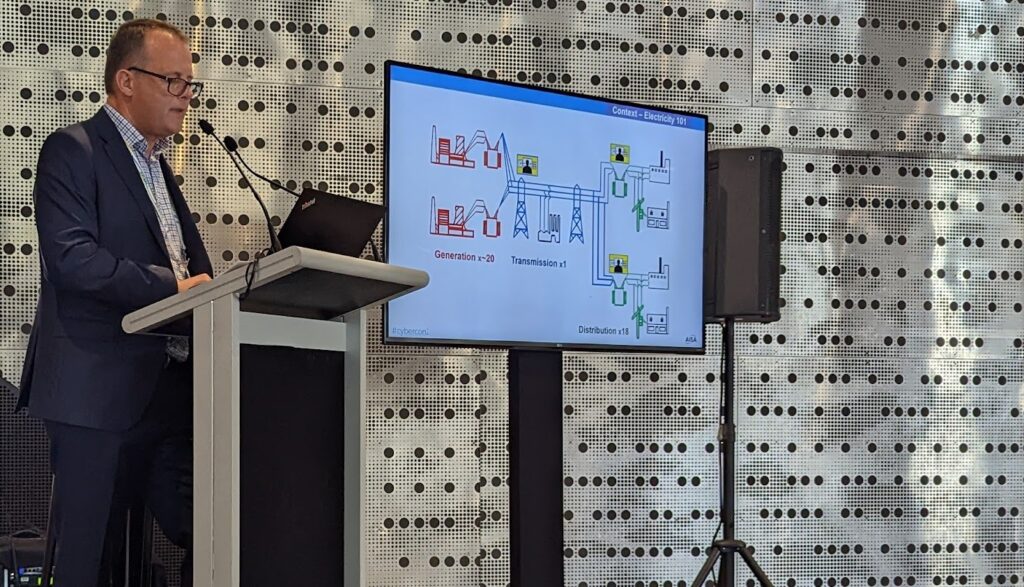
This was a remote access tool, where by engineers would see their mouse cursor moving and keystrokes being entered, but then custom firmwares flashed onto PLCs, turning the lights out for three regions of Ukraine. Power company staff had to drive to the remote sub stations to physically turn power back on, as all remote operations was lost.
The company had firewalls and VPN services in place, but clearly not strict and restricted enough to block this behavious – let alone network segregation (air-gap).
Of course, my session:
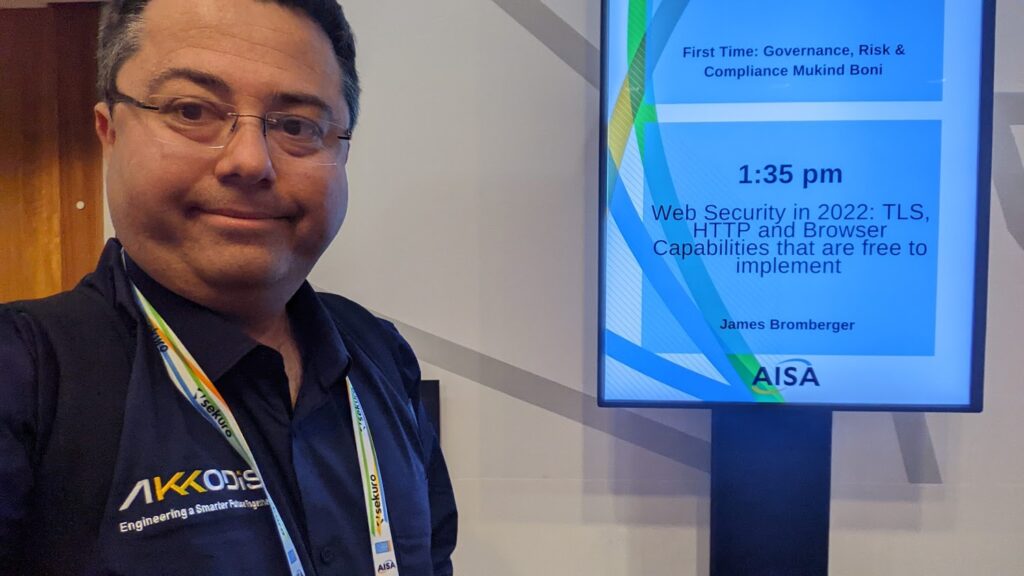
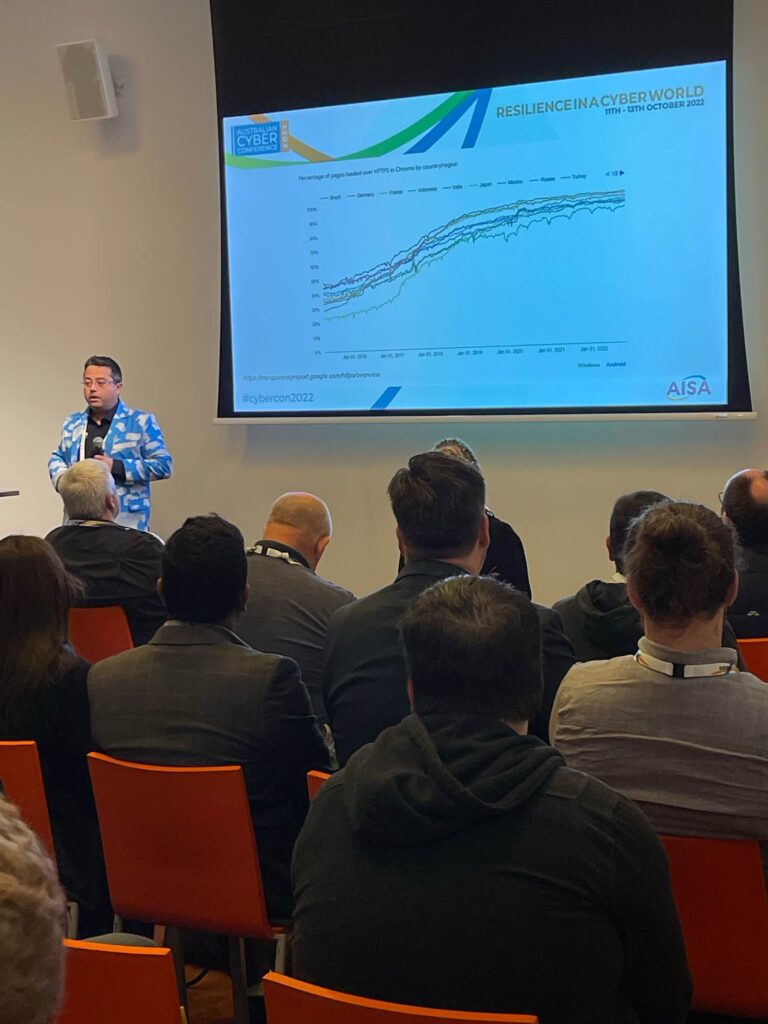
Another session (no pics) spoke about securing domains (something I look to tools like Ivan Ristic’s hardenize.com). A new (minor) record to add to DNS is the BIMI record, to indicate the marketing icon (square SVG) to be displayed to users for authenticated mail from your domain. Personally I see that as just another record that a typo-squatting domain could just copy and use as well, so wont actually elevate security, but it was a new one for me (
But my highlight was meeting Cricket Liu, the author of the original DNS & Bind O’Reilly book.
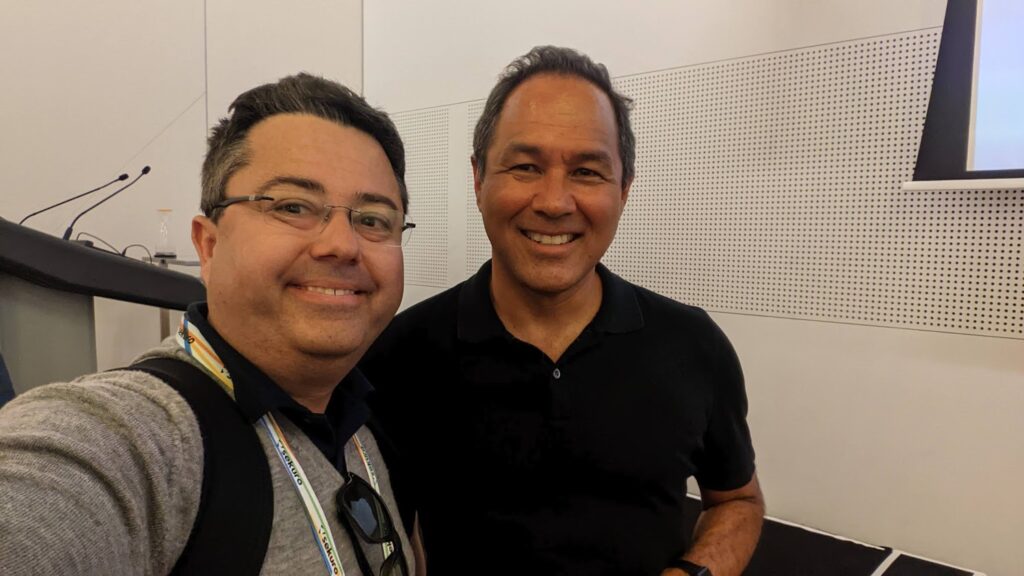
Cricket spoke about the 30 years tha have passed since then, and the more recent use of Resource Policy Zones in DNS to provide blocking and logging of DNS queries for malicious domains – including generated domains that are registered and activated at particular times to be Command & Control services for botnets. With Bind (and alternatively products from his company) you can easily share the policies to block these services, IMHO akin to the capability now in AWS GuardDuty and AWS DNS Firewall. We also spoke about DNS over HTTPS, DNSSec, and more.
Of course, I wished I had a mug for the occasion.
But this discussion was by far and away the best of the conference for me. DNS is such a critical piece of our network engineering, and in so many environments its set up, works, and is then ignored; despite the fact that it is feasible to exfiltrate data (20 bytes at a time) over DNS – probably with millions of requests – but that will probably be invisible to most network operators.
